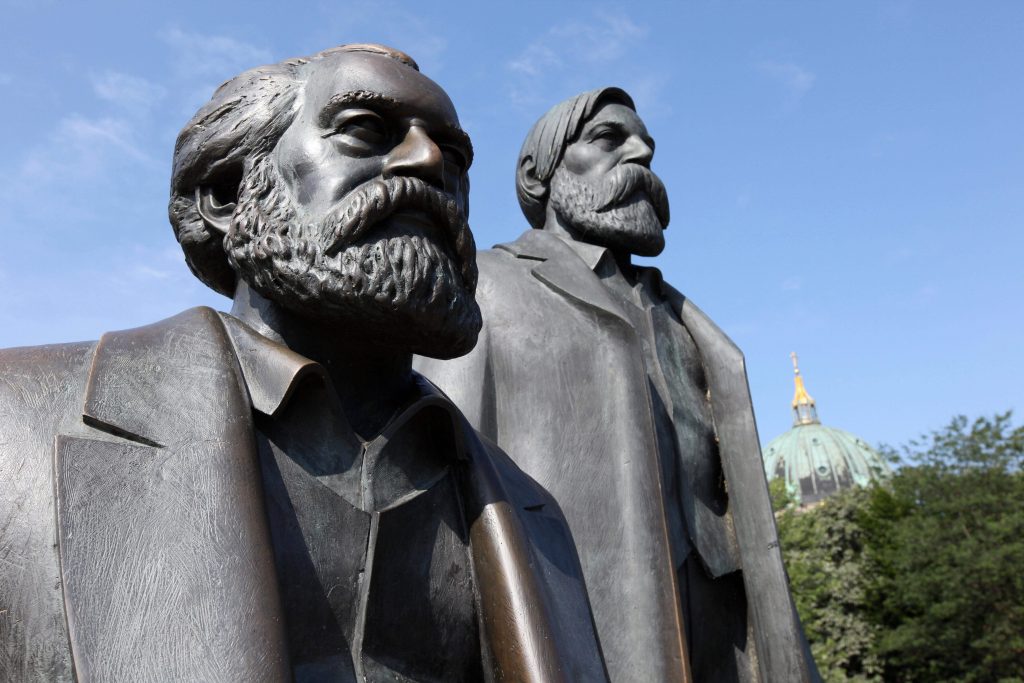The philosophical underpinning of Marxism-Leninism is often referred to as “dialectical materialism”. Parts 1 and 2 of this series set out what that actually means; materialism in this issue and dialectics in the next issue.
In Ludwig Feuerbach, Engels describes the materialist method in the following way: “To comprehend the world-nature and history-just as it presents itself to everybody who approaches it free from preconceived idealist fancies”. Lenin writes in Materialism and Empirio-Criticism that “the fundamental premise of materialism is the recognition of the external world, of the existence of things outside and independent of our mind”.
This leads us to one of the oldest questions of philosophy-the question of the relationship between thinking and being. This question has divided all philosophers, and indeed anyone who pauses to consider their view on life, into two camps. Those who assert that the mental (or spiritual) is primary and the physical secondary are termed idealists, while those who believe that the physical is primary comprise the materialists.
Ever since this question was posed, people have attempted to blur the distinction between materialists and idealists, some by claiming to have “transcended” both philosophies or created a synthesis of the two. But in reality these “Syntheses” turn out to be either idealism dressed up in new terminology, or else what Engels called “shamefaced materialism”.
A particular case of the latter is “agnosticism” (the name comes from the Greek from “don’t know”), which operates like materialism in practice but in theory refuses on principle to answer the question. In some cases, rather than challenge materialist philosophy, attempts have been made to change the actual meaning of the word itself.
“By the word materialism the philistine understands gluttony, drunkenness, lust of the eye, lust of the flesh, arrogance, cupidity, avarice, miserliness, profit-hunting and stock-exchange swindling-in short, all the filthy vices in which he himself indulges in private. By the word idealism he understands the belief in virtue, universal philanthropy and in a general way a ‘better world,’ of which he boasts before others, but in which he himself at the utmost believes only so long as he is going through the depression or bankruptcy consequent upon his customary ‘materialist excesses” (Engels).
But idealism in its correct philosophical usage means the belief that the mental (or spiritual) is the precursor, and indeed the creator, of the physical world around us. In its most extreme form this becomes a refusal to acknowledge the existence of real, physical objects. It is held that the entire world exists only in our minds.
However, this philosophy, in refusing to recognise the existence of the physical body, leads to the postulate that these thought processes, with which we create the world we see around us, are carried out without the use of the brain (as this would mean accepting the existence of a physical organ). This suggestion (Lenin termed it “brainless philosophy”) in its most extreme form leads to the claim that “only I exist”, and everything and everyone else is a figment of my imagination.
The less openly crazed variant still runs into serious trouble, since it argues that nothing exists except insofar as it is perceived by a human mind, it is forced to deny that the world (or the universe) existed before there were people to observe (“create”) it.
Other, more sophisticated forms of idealism are on the surface much more acceptable. These include the various world religions, which hold that the world owes its origins to some supernatural creator; and other philosophies, like that of Hegel, which replace the god of the monotheistic religions with the “absolute idea”.
This type of idealism recognises material objects, but asserts the existence of a “higher”, “purely spiritual” world of which matter is only the “reflection”. This is the opposite of the materialist view, which sees matter as primary and regards thoughts as images or reflections of matter, themselves created by a piece of matter-the brain.
This view can be caricatured by claiming that materialists “reduce” human behaviour and society to the level of machines, leading to the argument that we need to hang onto the idea of the “soul or else abandon compassion, morality and indeed political commitment”. Nothing could be further from the truth. No materialist can argue, as some idealists do, that physical suffering is needed in order to “purify” the spirit; nor, as other idealists sometimes do, that it is a preparation for a perfect life after death in which justice will be restored.
As communists, and materialists, we recognise this reality as the only reality. We can change the world; but to do so, we need to understand it correctly. Materialism means that all aspects of reality are open to scientific investigation and analysis; nothing can be parcelled off into a separate “spiritual realm” in which science is helpless in the face of “the will of God”. This is an essential part of the world outlook of scientific socialism, which aims to understand the world in order to change it.



